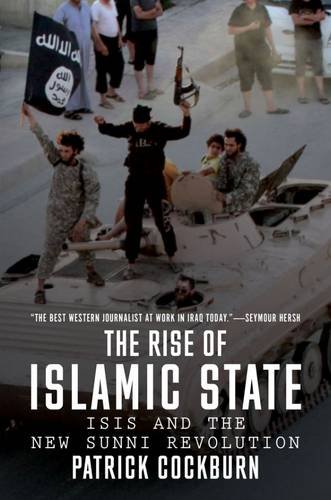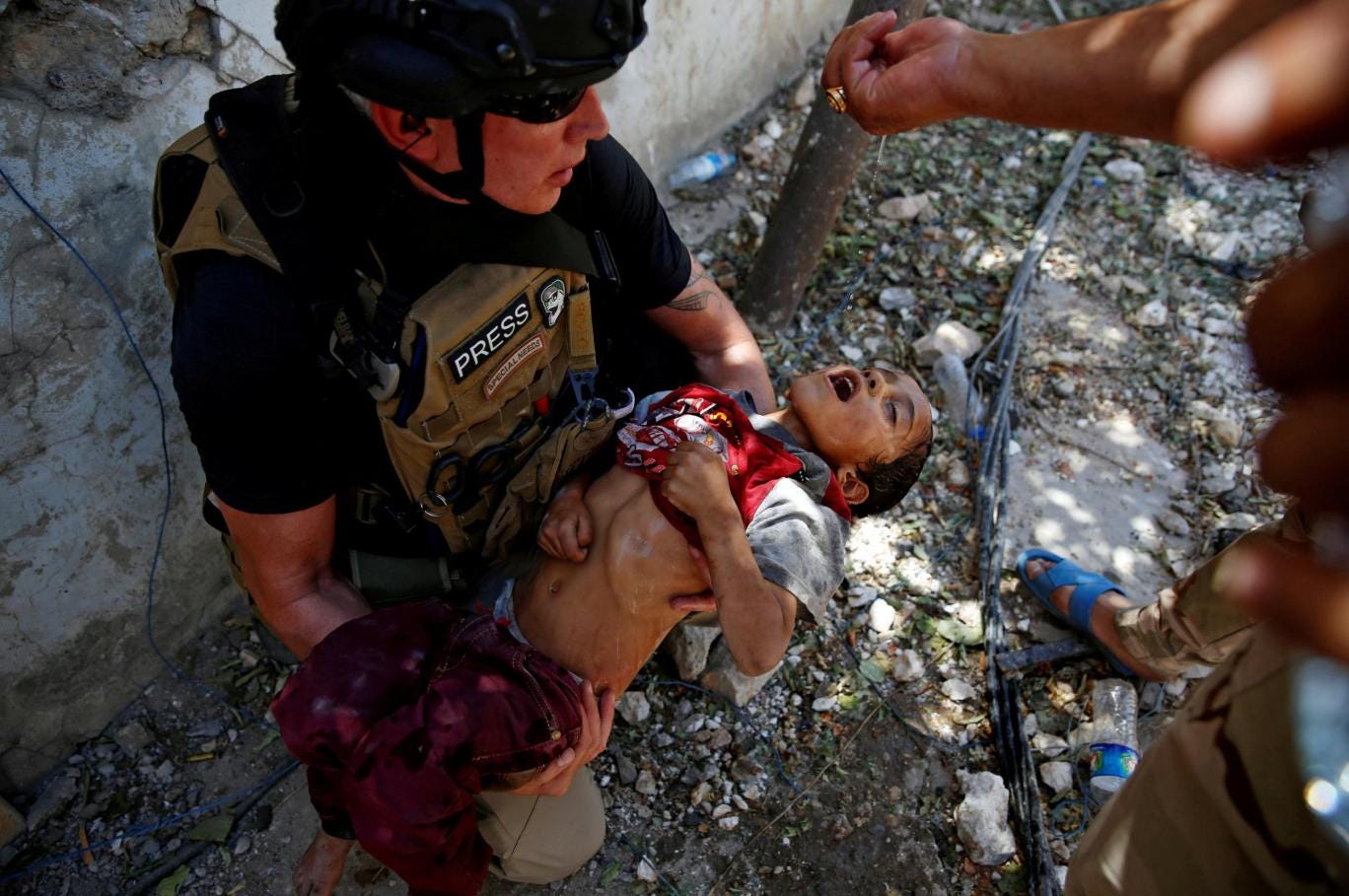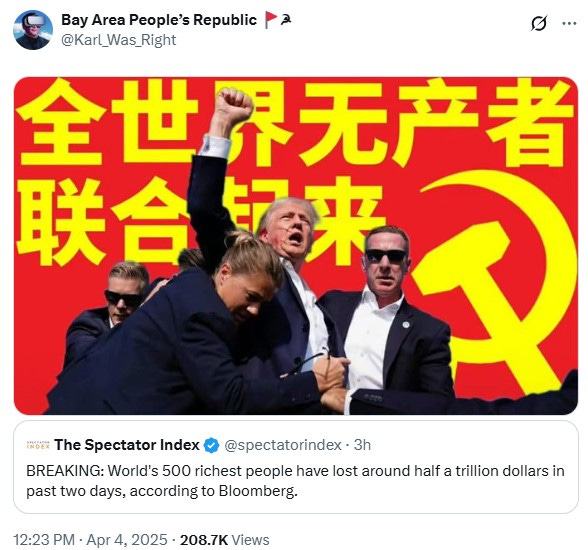The Kurds may have lost 40 per cent of the territory they previously controlled over the last two days as they withdraw from areas long disputed with Baghdad. Kurdish Peshmerga fighters are pulling back from a great swathe of land in northern Iraq stretching from Syria in the west to Iran in the east.
It is becoming clear that the two main Kurdish parties, the Kurdistan Democratic Party (KDP) and the Patriotic Union of Kurdistan (PUK), both agreed at a meeting on Sunday that they had no choice but to withdraw from Kirkuk and other disputed territories. They knew that they were too weak to fight the Iraqi security forces and they had no allies to whom they could appeal for help. Kurdish leaders are now blaming each other for the debacle, which will go down as one of the great disasters in Kurdish history.
The political geography of northern Iraq is be transformed, much to the disadvantage of the Kurds. Kurdish military units have retreated from the Sinjar region close to the Syrian border which is home to the Yazidis who were massacred and enslaved by Isis when they advanced in August 2014. A paramilitary force made up of Yazidis but owing allegiance to Baghdad has taken over. At the other end of the dividing line between Kurd and non-Kurd, Peshmerga have left the towns of Khanaqin, Jaloula and Mandali close to the Iranian border north east of Baghdad. These are all places where the Kurdish parties had exerted themselves to firmly establish their rule in the last few years and are now lost, probably forever.
Peshmerga have also abandoned the last two oilfields they held near Kirkuk city, thus ceding all the gains the Kurds have made territorially since the US invasion and the fall of Saddam Hussein in 2003. Possession of the Kirkuk oilfields had been considered essential if the Iraqi Kurds were ever going to achieve economic independence.
Celebrations are widespread in Baghdad at what is seen as a second great victory for Iraq and the Prime Minister Haider al-Abadi this year. The first success was the capture of Mosul after a nine-month siege in July and the second is the unexpectedly easy defeat of the Kurds this week in the wake of their self-destructive referendum on independence on 25 September.
“What I fear now is triumphalism in Baghdad where there is talk about enforcing central government authority everywhere in Iraq,” said one Kurdish commentator who did not want his name published. This might mean Baghdad putting heavy political and military pressure on the three Kurdish provinces that make up the Kurdistan Regional Government and which now look vulnerable.
The Iraqi President Fuad Masum, himself a Kurd, has called for dialogue between the central government and the Kurdish leaders to resolve the crisis sparked by the referendum. Mr Abadi referred to the referendum as “finished and a thing of the past” but also called for dialogue “under the constitution”, which would rule out Kurdish independence. There is no doubt that the balance of power has swung dramatically towards Baghdad and away from the Kurdish capital Irbil.
Mr Barzani and his KDP party sought on Monday to blame the PUK Peshmerga for the unopposed advance of the Iraqi security forces, accusing them of betraying the Kurds by reaching a separate deal with Baghdad. But Kurdish sources have told The Independent that both KDP and PUK had agreed that they were too weak to fight for Kirkuk, though orders did not reach all Peshmerga commanders in time. A hospital in the Kurdish city of Sulaimaniyah says that it has received the bodies of 25 dead fighters and treated 44 wounded. Overall, casualties on both sides have been slight which is evidence that a deal on withdrawal had been struck before the Iraqi government advance. KDP Peshmerga withdrew from Sinjar on Monday and from the positions they held in Kirkuk province in what was evidently a prearranged retreat.
Mr Barzani himself is blaming “unilateral decisions taken by Kurdish politicians”, an accusation that presumably does not include himself though his ill-judged decision to hold a referendum brought on a confrontation with Baghdad in which the Kurds held much the weaker hand. The referendum was opposed by all international and regional powers with the exception of Israel and Saudi Arabia, neither of whom was in a position to be of any practical help to the Kurds. Mr Barzani also chose to challenge Mr Abadi just after his armed forces had won a big victory in Mosul and he was unlikely to back down.
The US opposed the referendum and has kept its distance from the crisis. President Trump could not have sounded more disengaged saying: “We don’t like the fact that they’re clashing,” and adding that “we’ve had for many years a very good relationship with the Kurds as you know, and we’ve also been on the side of Iraq.”
Responsibility for the disaster will be debated by Iraqi Kurds for decades to come, but in practice it was the result of Mr Barzani overplaying his hand and divisions between Kurdish parties which meant that they did not have a military option against Baghdad. Thanks to the referendum, the Iraqi Kurds have not only will they have failed to win independence, but will find the autonomy they previously took for granted under threat as Baghdad tightens its control on the Kurdish provinces.
Many Kurds will see the hand of Iran and the Islamic Revolutionary Guard Corps (IRGC) as manipulating the Baghdad government and the Kurdish parties to produce the present outcome. Iran will be pleased that the Baghdad government has been strengthened and Mr Barzani, who is traditionally close to the US, has been weakened, but there is no need for conspiracy theories to explain what happened. Essentially, Mr Barzani started a confrontation which he could not win.

 RSS
RSS










[It is becoming clear that the two main Kurdish parties, …(KDP) and ..(PUK), both agreed at a meeting on Sunday that they had no choice but to withdraw from Kirkuk and other disputed territories.]
I don’t understand why the embedded ‘journalists’ are using ‘disputed territories’ while everyone knows that Kirkuk was stolen during US invasion of Iraq. The kurds are copying the Zionist policy, grabbing other people’s territories for EXPANSIONIST purposes. As Max J. Joseph in “what the KRG’s Loss of Kirkuk Means for Iraq” said:
[The “disputed” territories in the unilaterally imposed referendum is proving to be the fatal misstep (in quotes because I’ve never accepted the “dispute”, and don’t want to dignify KRG claims on lands belonging to Assyrians and other minorities outside of the KRI).]
Since Clinton regime, the stolen land of Palestinians is called ‘disputed territories’ be western intelligence services and their agents.
Mr. Joseph clearly believes that occupying other lands is for expansionist policy NOT ‘independence’. He writes:
[The KRG, dominated for years by the politically bankrupt KDP, were stubborn enough to go ahead with the referendum in the face of almost universal opposition. The problem was that they went one step further by incorporating post-2014 newly conquered lands into the question. I’ve said this so many times: acquiring leverage for expansion and not independence had always been the purpose of the referendum.]
Cockburn writes:
[Many Kurds will see the hand of Iran and the Islamic Revolutionary Guard Corps (IRGC) as manipulating the Baghdad government and the Kurdish parties to produce the present outcome.]
This is nonsense. Your plot has failed and now you are trying to deceive the public.
Let see what Mr. Joseph says:
[The KRG gambled and lost, and that was very much the Barzani family’s call. Greed is a horrible thing, and it remains their cardinal sin.]
And so much for HOAX picture of Peshmerga, ‘good fighters’. Let see what Joseph says:
[Some Kurds are saying that the lack of bloodshed and violence on the part of the Peshmerga and its commanders represents a grand betrayal. That they should have defended the city against all comers. Ex-Governor Karim desperately asked ordinary citizens to take up arms and resist before he himself fled to Erbil. Peshmerga commanders were interviewed by KRG media and they promised “massacres” if Kirkuk was approached by Federal forces. None of this happened, and there is a weird air of regret and mourning wafting around the commentary on the internet.
The relevant point here on Kirkuk remains the same for me: the city should be administered in a fair way which represents the people of the city, and not as a vehicle to fill the coffers of the Barzani family. Individuals aligned with the KDP and PUK have taken to social media and declaring each other traitors.]
This is NOTHING TO DO WITH IRAN and everything to do with a corrupt and opportunist CLAN in the service of the Criminal West against the indigenous population. Corruption is widespread withing Kurdish region thus the reporting of referendum conclusion cannot be trusted. The witnesses of the referendum explained:
[Western actors made no secret of their opposition to it, never mind regional actors such as Turkey and Iran. Nevertheless, the referendum was confirmed the night before its scheduled execution in all its shambolic glory. Voting patterns betrayed endemic corruption: ballot boxes were either stuffed or shuttled away secretly according to eyewitnesses, in keeping with previous elections and referendum conducted by the KRG. Residents were harassed by Kurdish asayish calling and knocking on their doors, state employees were bused to polling stations and watched over carefully by armed soldiers. What was meant to be an expression of the Kurdish peoples’ legitimate will was transformed into a ploy by illegitimate KRG leaders to have more cards to play in their negotiations with Baghdad.]
Kirkuk is historically Kurdish and was colonized with Arabs by Saddam
Stop your lies.
Barbara Nimri Aziz writes:
[The Iraqi government has every right to assert control over Kirkuk. The city had never been a Kurdish center and only after it repulsed threats by ISIS three years ago, did Peshmerga replace Iraqi government forces in the area. Peshmerga has been a coddled and abetted military presence in the US-UK-Israel plan to divide Iraq. (No Kurdish force has had any legitimate presence there.)
So recent references by both National Public Radio and BBC news hosts about Peshmerga fighters representing Kurdish sovereignty in Kirkuk are misleading at best.]
https://www.globalresearch.ca/kirkuk-a-counterfeit-prize/5614198
Why is there so little willingness by US and British media to acknowledge the character and legal status of Kirkuk in Iraq? One hears no reference to the strategic transformation of the city and its environs by nationalist-secessionist Kurdish interests from a majority Turkmen community to a Kurdish one starting in 1991 when the US and UK helped establish an inchoate Kurdish sovereign state in northern Iraq?
Why should we care about Turks’ alleged claims to Kirkuk?
The Kurds, or any other small group, taking territory or resources from the Turks, is just fine by me. Certainly doesn’t help Americans, or indeed any non-Muslims, to have Turkey grow stronger or expand as they are currently doing (“illegally”) over their borders in Syria and Iraq.
[Why should we care about Turks’ alleged claims to Kirkuk?]
Why the Turks should claim to land of Iraqi, Kirkuk? Because few Turkmen are living there? Then they must be crazy and no one pays any attention to crazy people. Every country consists of many minorities so Iraq.
KIRKUK BELONGS TO PEOPLE OF IRAQ.
No one trust Erdugan, a zionist mass murderer, and Turkey, Trojan horse of the imperialists in the region.
Seriously, what an unholy alliance!!